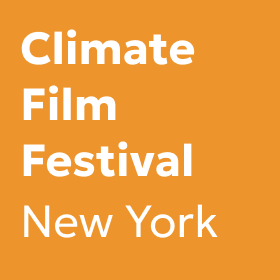The Spotlight: Cooked: Survival by Zip Code (2020)
The Spotlight series takes a fresh look at works of climate cinema
By Aashika Balaji
As part of our Earth Week 2024 programming, CFF is excited to collaborate with WE ACT for Environmental Justice to screen Cooked: Survival by Zip Code (2020, dir. Judith Helfand) on April 26th at the Maysles Documentary Center. Cooked is a documentary about one of the deadliest heatwaves in U.S history, which took place in Chicago during the summer of 1995. Over the span of just one week, 739 people died from the effects of extreme heat. But what’s even more striking about this figure is that the majority of the people who lost their lives were poor, elderly, and African American.
Cooked frames heatwaves as what they increasingly are: natural disasters that are exacerbated by climate change. With 2023 being the hottest year on record, the frequency and intensity of natural disasters has increased, and we’ve seen the same pattern reflected with heatwaves. In major U.S. urban areas, they’re happening more often, for longer stretches, and at a much more severe level. As revealed in the documentary, heatwaves kill more Americans than any other natural disaster, and communities of color are the most impacted by far.
Cooked asks an important question: when heatwaves strike, who’s actually guaranteed safety in U.S. cities, and who isn't? As natural disaster preparedness becomes more relevant, we have to consider the issue through the lens of privilege and equity. Many communities of color in urban areas don’t have access to the tools that are necessary to defend themselves from extreme heat, whether that be reliable AC, backup generators, or even the ability to keep their windows open due to safety concerns.
Last year, NYC was ranked as the most intense heat island in the country, and so implementing state-wide extreme heat mitigation measures is critical. Our screening collaborator WE ACT is working with South Bronx Unite, Earthjustice, Groundwork Hudson Valley, New York Disaster Interfaith Services, NRDC, and HeartShare Human Service through the NYS Extreme Heat Coalition, formed to protect heat-vulnerable urban communities throughout New York State. You can learn more about the Extreme Heat Coalition’s incredible work and how you can take action or get access to resources to address extreme heat in New York State.
About WE ACT
WE ACT for Environmental Justice is a community-based organization headquartered in Harlem with a Federal Policy Office in Washington, D.C. Its mission is to build healthy communities by ensuring that people of color and low-income participate meaningfully in the creation of equitable environmental policies and practices. A recognized leader in the environmental justice movement, WE ACT has been organizing and advocating at the city, state, and federal levels for the environmental health and protection of Northern Manhattan communities since its founding in 1988. You can learn more at weact.org and follow them on Twitter/X and Instagram at @weact4ej.
Aashika Balaji is CFF’s volunteer Community Engagement lead and manages the relationships with community groups around New York City, which is a critical part of CFF’s environmental justice platform. She’s been working in the climate space for 3 years as a Senior Program Associate at The Clean Fight, a nonprofit climate tech accelerator based in New York City.


